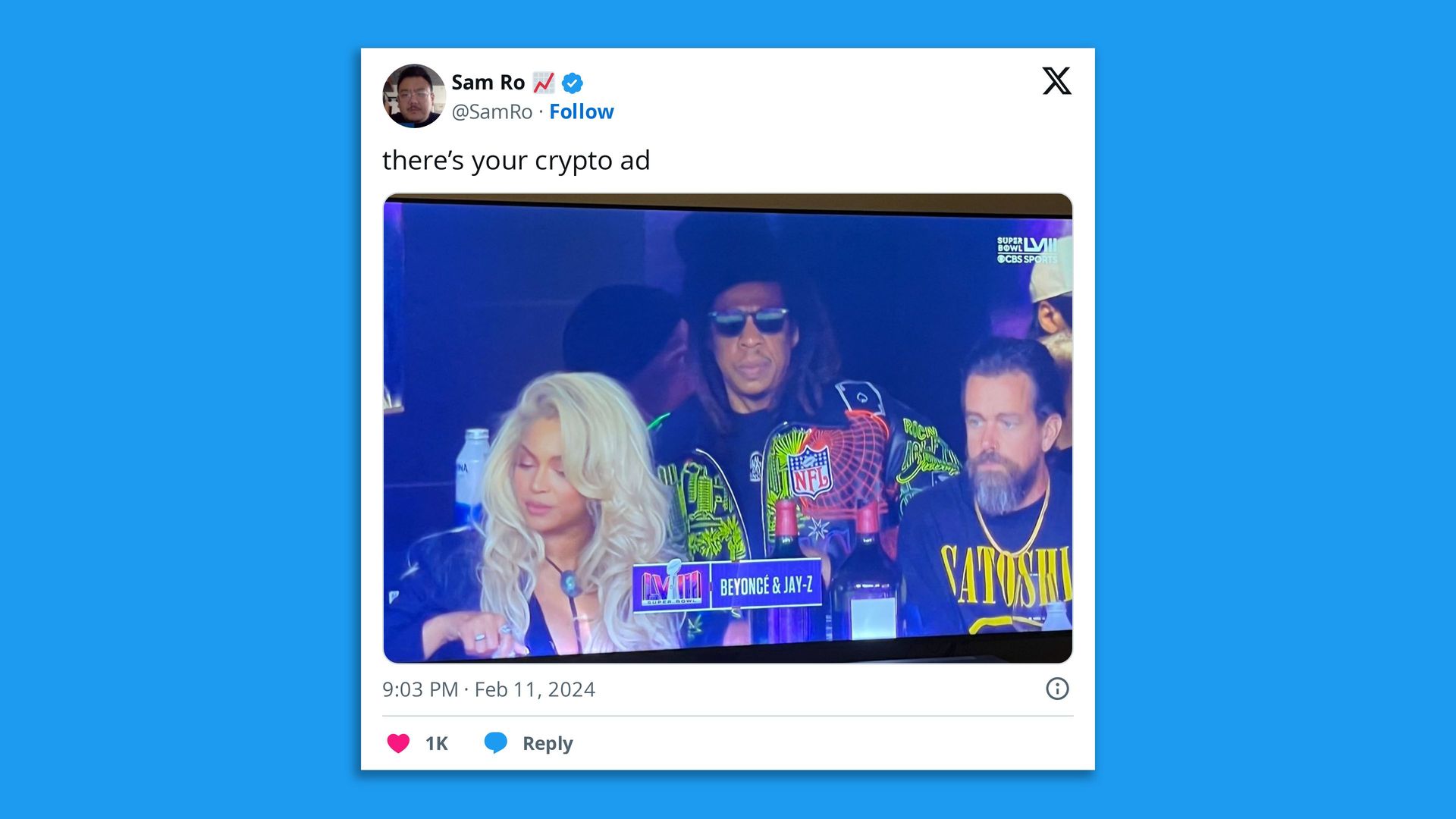What Sunday's Super Bowl ads told us about the economy

- Hope King, author ofAxios Closer

Beyoncé, Jay-Z and Twitter co-founder Jack Dorsey spotted in a Super Bowl suite Sunday. Screenshot: X/@SamRo
This year's Super Bowl was every bit as notable for who didn't advertise as for who did.
Why it matters: Analysis of the game's 30-second spots has long been considered a valuable barometer for the state of the U.S. economy.
Details: The crypto industry sat out last night's Super Bowl for the second straight year.
- Its continued absence reflects an industry still licking its wounds after FTX's downfall threatened to completely undermine public trust — despite recently rising bitcoin prices and newly launched ETFs.
Two years ago, advertisers spent big on campaigns like crypto and VR, striking an intentionally positive tone and avoiding mention of the pandemic.
On Sunday, the tone was equally upbeat but rooted in hot consumer trends. Among the standout commercials:
- Candy and snacks (Poppi, M&M's).
- Online shopping (Etsy, Temu).
- Return to theaters ("Twisters," "Wicked: Part One," "A Quiet Place: Day One").
- Streaming media (Paramount+, Disney+, Pluto TV).
Meanwhile: The big three U.S. automakers sat out this year too, months after early fall strikes with the UAW.
- In separate statements, they cited a focus on spending and business fundamentals, with Stellantis citing "a challenging U.S. automotive market."
- International competitors Kia, VW, Toyota and BMW filled the gap, however. And their ads drew more engagement than the median Super Bowl spot, measurement platform Edo notes.
What we're watching: A wider and younger audience is attracting a slew of new brands to the big game, Axios' Sara Fischer and Kelly Tyko write.